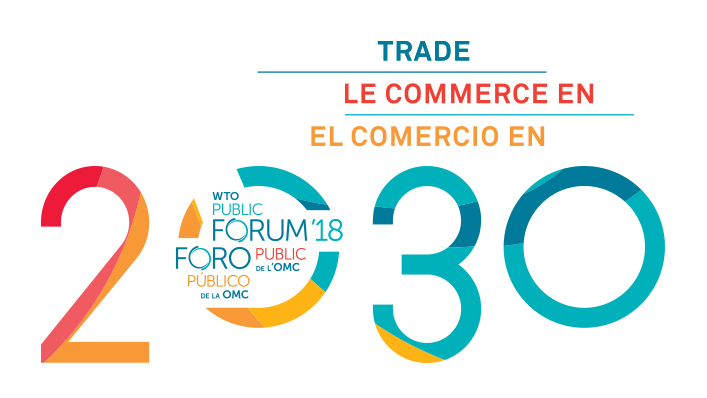The digitisation of SMEs and their role in shaping future trade
4 Oct 2018 02:00h
Event report
Ms Claudia Schmucker (Head of the Globalisation and World Economy Program, German Council on Foreign Relations (DGAP)), started by highlighting the important role of micro, small, and medium enterprises (MSMEs) in the global economy, including for promoting GDP growth. Trade policy can either hamper or facilitate the future inclusion of small and medium sized enterprises (SMEs) in global value chains (GVCs). However, SMEs are do not only react to the legal environment, they can influence it as well.
Mr Christian Diemer (CEO, Heitkamp & Thumann Group), stated that the impact of digitisation on SMEs depend on whether they are in the business-to-customer (B2C) or business-to-business (B2B) segment. In B2B, companies are less affected by digitisation, while B2C models need to change and adapt very fast. For a B2B company like Thumann, digitisation is just another step in evolution, and does not put into question the core business model. Nevertheless, there are new challenges for these companies, such as the rise in cybercrime. Small businesses often cannot afford dedicated IT security teams.
Ms Caroline King, (Senior Director, Government Relations, Global Head Business Support, Digital Government, SAP AG) noted that cycles of innovation are becoming faster, and company growth is usually happening through start-up and SME acquisitions. Large companies are interested in promoting incubators, innovation centres and capacity building.
Mr Robert Koopman, (Chief Economist and Director, Economic Research and Statistics Division, WTO) noted that SMEs are not well integrated into the global economy. There are barriers related to cross-border commerce, such as understanding the commercial and regulatory environments. MSMEs represent a large share of firms, but a relatively small share of global output (GDP) and exports.
Mr Ilja Nothnagel (Managing Director International Economic Policy, Association of German Chambers of Commerce and Industry (DIHK)), commented on possible opportunities and threats that digitalisation can pose for MSMEs. He noted that companies are hiring more workers, but in different sectors.
Schmucker asked the speakers to reflect on the role of WTO negotiators, and what they can do to facilitate trade, fight protectionism, and integrate SMEs in GVCs.
Diemer disapproved of over-regulation. He opined that the European Data Protection Regulation (GDPR) is too strict for MSMEs, and it slows down businesses. The WTO should help promote harmonised global standards that simplify the regulatory patchwork that companies are currently confronted with.
King opined that multilateral rules need to be stable, predictable, and harmonised. Markets need to be as open as possible for MSMEs and other companies.
According to Koopman, there is a general recognition that common legal standards would bring certainty, increased transparency, and lower costs for firms. The challenge is agreeing on specific standards. There are already agreements in place in the WTO that are important for MSMEs and digitisation, such as the Information technology Agreement (ITA) and the Trade Facilitation Agreement (TFA).
Questions from the floor were related to the role of the WTO in protecting MSMEs against Internet giants; national policies that demand local content and data localisation; costs of introduction of new technologies; and the importance of the Digital Geneva Convention proposed by Microsoft.
According to Diemer, small companies could be threatened by large Internet companies, but medium companies will not go out of business. Moreover, tech giants are buying creativity when they buy start-ups, which could also be positive. King reminded that Google, Apple, Facebook, Amazon, Alibaba, and Microsoft are just a part of the Internet economy. There are many other innovative companies being created. In Germany, while large companies are crashing, MSMEs are thriving.
Koopman, opined that there is a need to understand which regulations can be better introduced on national or international levels. There are economic benefits of regulatory coherence, and a Digital Geneva Convention laying out principles could be an useful development.
Diemer opposed regulation that requires companies to open offices in other countries. He explained that his company opened offices in some countries to comply with local content regulations, but it was very costly to operate and the offices were closed.
Ilia argued that protecting small companies from large ones is not a good path, because they lose dynamism and the capacity to compete. It is better to strengthen competition norms, and to introduce measures to support SMEs, such as helping them deal with border procedures. He mentioned that the introduction costs of new technologies and processes are lowering, but there is a lack of skilled labor, so human capital costs are going up.
Related topics
Related event

